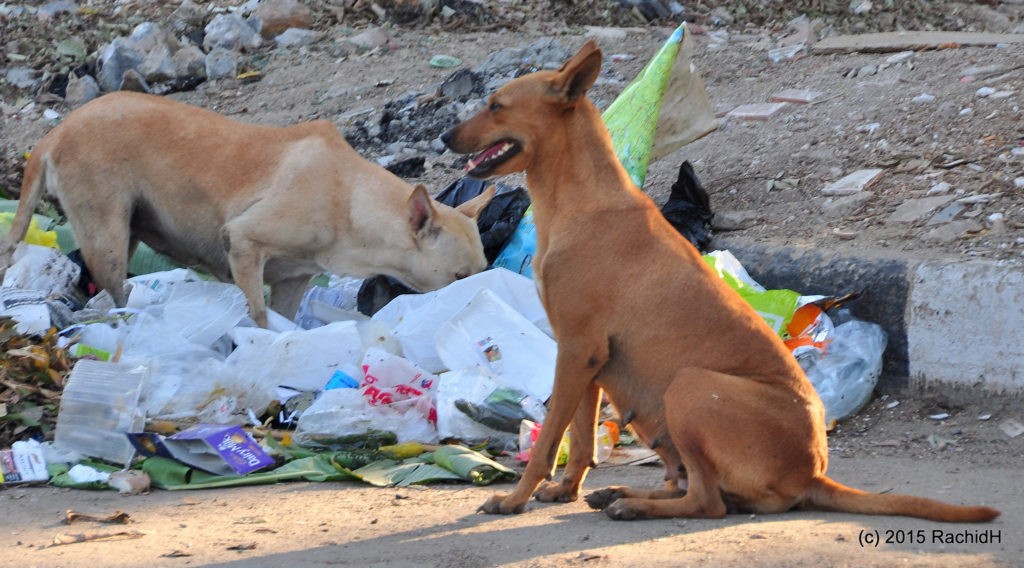Egyptian authorities regularly receive complaints from local people claiming that stray dogs are aggressive and dangerous. Unfortunately, in response to these complaints, the Veterinary Service Department in Egypt has killed countless numbers of stray animals. Poisoning with strychnine (an alkaloid that can be fatal to humans and other animals and is also highly toxic to the environment) is a common method of killing free roaming cats and dogs, but in some areas of the country shooting is a common practice too.
In a rare piece of good news for Egypt’s stray animals, there is a proposed legislative amendment for article 357 of Egyptian law, which has been submitted by Member of Parliament Nadia Henry. The amendment states that “A penalty of imprisonment or a fine of not more than 10,000 EGP shall be punishable for the intentional killing, or poisoning, or trading for the purpose of eating an animal, whether domesticated, or left/stray, or had done the animal severe harm.”
Henry confirmed that she is in the process of preparing a resolution draft that will include all aspects of animal protection, including farmed animals, in compliance with the Egyptian constitution.

Stray dogs scavenge in garbage in Cairo, Egypt. Image credit Rachid H, CC BY-SA 3.0.
The Egyptian authorities urgently need to engage in the planning and implementation of humane dog population control programs. Some NGOs are implementing successful trap, neuter, vaccinate and release (TVNR) programs, and some activists have been in contact with government agencies to discuss humane dog population control methods.
Detailed statistics are unfortunately not available on the number of stray dogs and cats in Egypt or the number of people bitten by dogs. However, a recent study on the spread of rabies reported that:
“Data [on rabies in Egypt]are very sparse, especially after the ‘Arab Spring.’ From the limited data available, rabies virus has been confirmed in this area for a long time… From 2000 to 2010, the situation has been stable, with an annual number of 80 human rabies cases reported… To improve rabies control in Egypt, serious management of community dogs needs to be implemented, such as through a trap, vaccinate, neuter, and release (TVNR) method. Currently, more outdated approaches to dog population control are implemented. The TVNR method has already proven to be successful in a pilot study, which was financed and supported by World Animal Protection. However, the national budget did not allow for the extension of this project.”
Egyptian animal welfare associations are in discussion with the government to identify more humane ways to control the number of stray animals in the country and encourage the adoption of the proposed animal protection law. If passed, this law would solve many problems, and would hopefully stop the government itself from violating it. This would, in turn, hopefully encourage authorities to finally accept TVNR programs as the only humane solution.
Thanks to our member organization, Touch of Life Sanctuary, who provided us with this important information. Based in Egypt, Touch of Life has a big shelter hosting a large number of animals, mainly cats and dogs. Due to scarce financial resources, they cannot carry out massive TVNR projects, but they do their best to spay, neuter and vaccinate the largest possible number of rescued animals. They are also involved in awareness campaigns aimed at teaching children and adults about animal rights.
Featured image: Two stray puppies in Cairo, Egypt. Image credit Rachid H, CC BY-SA 3.0.






